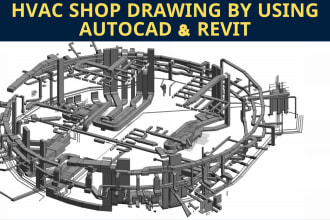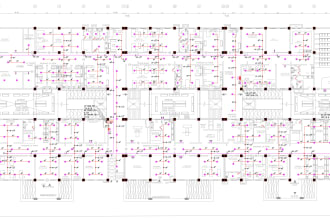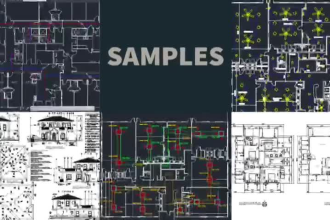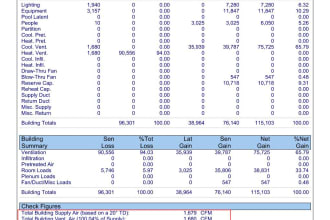Browse categories
HVAC
Expert planning for heating, air conditioning, and ventilation systems.
|493 Results
Sort by:

Level 2
I will draw electrical layout mep plan hvac design in autocad for city approval
From $20
Offers video consultations
HVAC FAQs
What is HVAC and what types of projects can an HVAC engineer work on?
HVAC stands for Heating, Ventilation, and Air Conditioning. It's a field of mechanical engineering that deals with the indoor and vehicular environmental comfort. HVAC engineers work on various types of projects including designing heating, cooling, and ventilation systems for residential, commercial, and industrial buildings. They can also work on specialized environments like laboratories or medical facilities where strict temperature and humidity control is required.
How can an HVAC engineer help with the design of a building's heating, ventilation, and air conditioning system?
An HVAC engineer can help design an HVAC system that meets the specific needs of a building while ensuring comfort and energy efficiency. They determine the size and layout of the system based on factors such as the size of the building, the climate, the expected number of occupants, and the building's insulation properties. They also design the ductwork layout and select the appropriate equipment such as furnaces, air conditioning units, and ventilators.
What are some common HVAC code requirements that must be followed in building design?
Common HVAC code requirements can vary depending on the location and type of building but often include rules about system sizing and capacity, equipment efficiency, ventilation rates, ductwork installation, and the provision of adequate combustion air for furnaces. Code requirements are typically based on standards set by organizations like the American Society of Heating, Refrigerating and Air-Conditioning Engineers (ASHRAE).
How can an HVAC engineer help ensure a building's HVAC system is energy efficient and meets the required standards?
An HVAC engineer can design a system that maximizes energy efficiency by choosing high-efficiency equipment, optimizing system size and layout, and incorporating controls that allow the system to respond to changing conditions. They also ensure that the design meets or exceeds applicable energy codes and standards. Additionally, they may recommend features like energy recovery ventilation or renewable energy sources such as solar thermal panels to further enhance energy efficiency.
What is the process for obtaining permits for HVAC work and how can an HVAC engineer assist with this process?
The process for obtaining permits for HVAC work typically involves submitting detailed plans and specifications for the HVAC system to a local permitting authority. An HVAC engineer can assist with this process by creating and reviewing the necessary documentation, ensuring it meets all applicable codes and regulations. They can also answer any questions from the permitting authority and revise plans as necessary.
What qualifications and experience should I look for when hiring an HVAC engineer?
When hiring an HVAC engineer, you should look for someone with a degree in mechanical engineering or a related field and experience in HVAC design. Certification from a recognized body like ASHRAE or a professional engineering (PE) license can be a strong indicator of their competence. You should also look for experience with your type of project, whether that's residential, commercial, or industrial. Lastly, consider their understanding of energy efficiency practices and applicable HVAC codes and standards.














